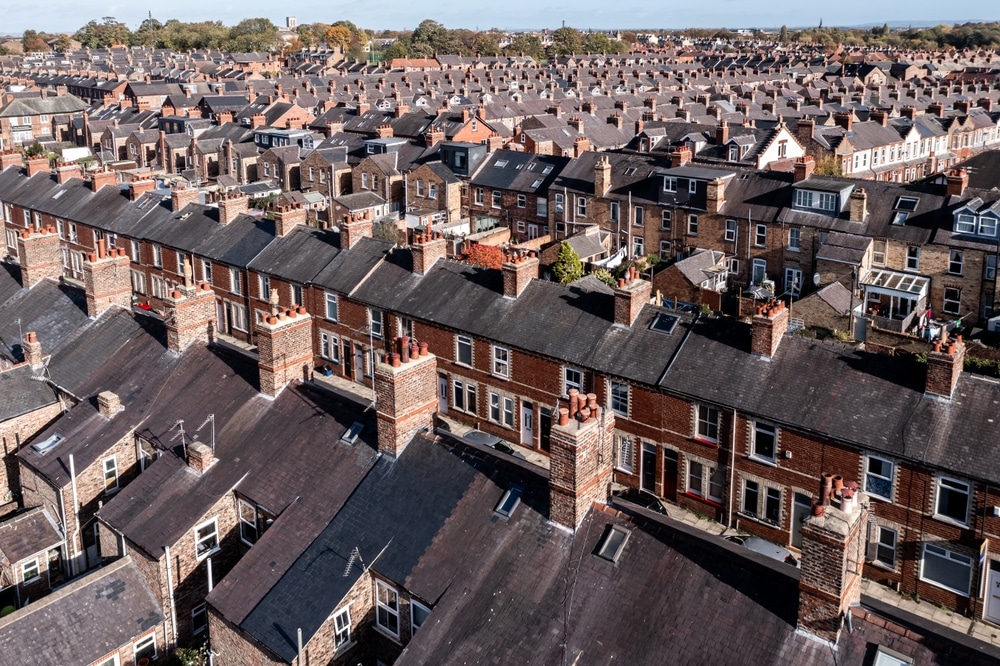The spotlight on sustainability has significantly influenced the property market in recent
years, marking a shift towards sustainable housing. This transformation is driven by increasing consumer demand, evolving government policies, and technological advancements. This isn’t just a passing trend, and the move towards sustainable, energy-efficient properties is expected to remain a significant consideration for the UK market well into the future.
Overview of the shift towards sustainability in the property market
The property market in the UK has witnessed various challenges this year. There has been
rising demand with limited housing supply, pushing prices upwards and making affordability
a pressing issue. Simultaneously, rising energy costs have been putting a lot of pressure on
homeowners.
In response, many homeowners are turning to energy-efficient solutions to reduce the impacts of rising energy prices. This shift is not only driven by financial concerns but also reflects a growing awareness of sustainability and environmental responsibilities. Increasing numbers of individuals recognise the importance of reducing their carbon footprint and minimising consumption within their homes.
Government initiatives play a pivotal role in pushing this transition forward. By incentivising
energy efforts and enforcing energy efficiency standards for new constructions, policymakers ensure that sustainable practices become more prominent across the housing sector.
Top methods for enhancing energy efficiency and sustainability in your property
If you’re contemplating a move towards a more sustainable future for your property, consider the following practical methods:
1. Sustainable design features: Improve energy efficiency through enhanced insulation to significantly reduce heat loss and lessen reliance on conventional heating systems. Installing solar panels offers a popular means to generate electricity and heat water sustainably.
2. Water-saving features: Implement strategies for water conservation to minimise and reduce water bills:
- Low-flow fixtures: Install taps, showers, and toilets designed to conserve water.
- Rainwater harvesting systems: Collect and store rainwater for purposes like toilet flushing, reducing dependency on traditional water sources.
- Greywater recycling systems: Treat wastewater from showers, sinks, and laundry for reuse in tasks such as toilet flushing, effectively conserving freshwater resources.
3. Smart systems: Integrate smart home technologies to optimise consumption by managing your property’s heating, cooling, and lighting. These systems offer convenience and substantial energy savings.
4. Energy-efficient appliances and lighting: You can upgrade appliances which typically use high volumes of energy such as washing machines, refrigerators, and dishwashers to ones with higher efficiency ratings. LED lighting will also help reduce both your energy consumption and maintenance costs. Incorporating these sustainable practices into your property benefits the environment and
yields long-term cost savings.
Advantages of sustainable features
Sustainable housing offers advantages beyond environmental benefits, enhancing both quality
of life and financial stability:
- Reduced energy bills and increased savings: Energy-efficient properties result in significantly lower utility bills than your typical home, offering long-term financial advantages.
- Higher property values and faster selling times: The increasing demand for energy-efficient homes positions sustainable properties as highly desirable in the UK market, potentially increasing property values and attracting more buyers. Investing in sustainable features can reduce costs, boost savings, and provide a competitive edge if you want to sell your house in the future.
- Improved comfort and living experience: Sustainable homes prioritise personal comfort and well-being. For example, you can enjoy a more convenient and functional environment using smart home systems.
Challenges of energy-efficient housing
Despite the clear benefits, there are some challenges to incorporating sustainability and energy efficiency into your home:
- High upfront costs: Initial investments in sustainable building materials and technologies are typically higher than traditional methods, which may pose financial challenges for some homeowners.
- Limited skilled labour: A shortage of qualified professionals in sustainable construction practices can lead to delays and increased costs for this specialist.
- Complex financial support: While incentives exist to promote renewable systems and sustainable building practices, navigating and accessing these incentives can be complex and time-consuming.
These challenges reinforce the importance of continued investment in education, training, and
policy development to facilitate the widespread uptake of sustainable practices in the UK housing market.
Conclusion
In conclusion, sustainable housing is reshaping the UK property market, driven by increasing
consumer demand, evolving regulations, and technological advancements. Embracing sustainability is not just a passing trend, but a worthwhile investment for future-proofing new developments and existing properties.
Whether you’re considering upgrading to a more sustainable property or selling your current home, adopting sustainable practices can significantly benefit both the environment and your financial well-being. If you want to transition to a more sustainable and energy-efficient property, We Buy Any House can facilitate a quick sale of your current home, enabling a smoother transition to your future
housing goals.



